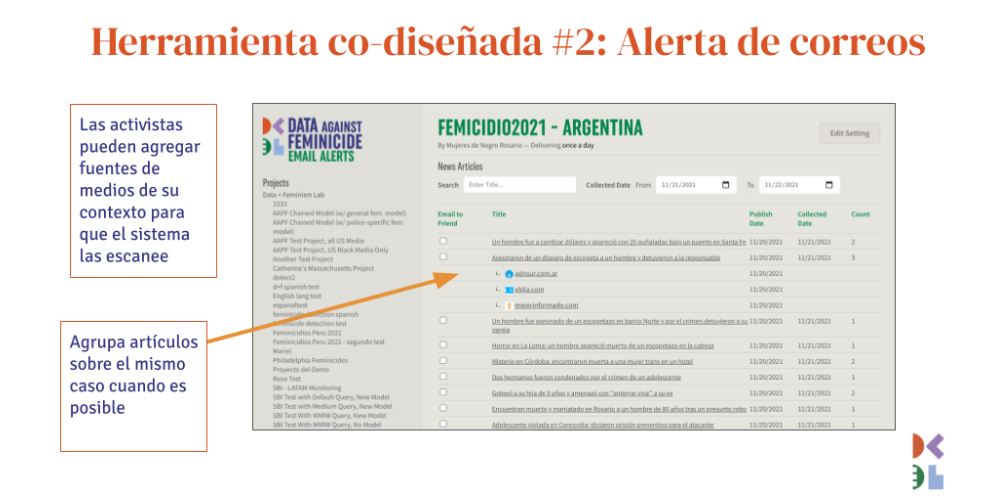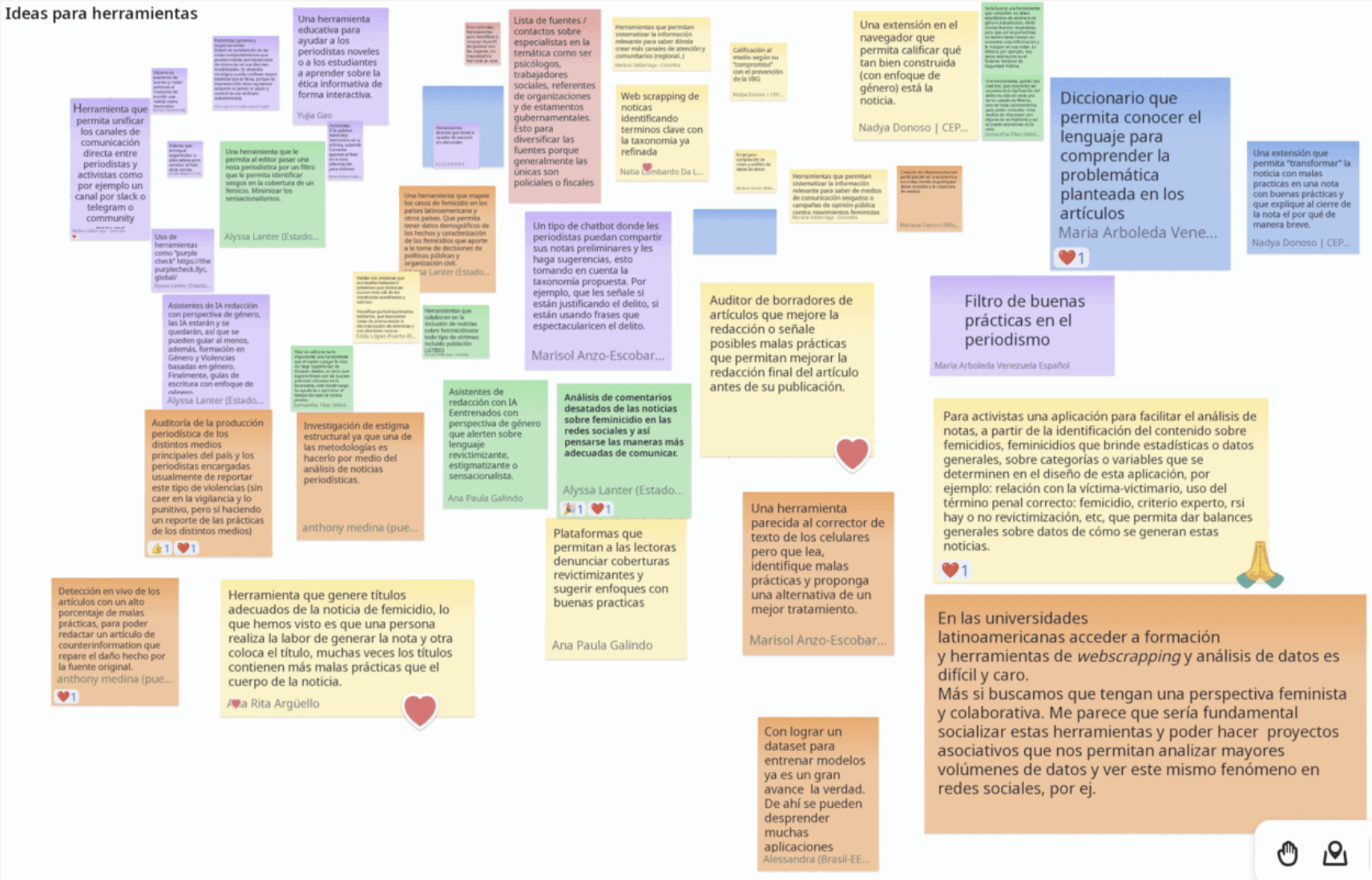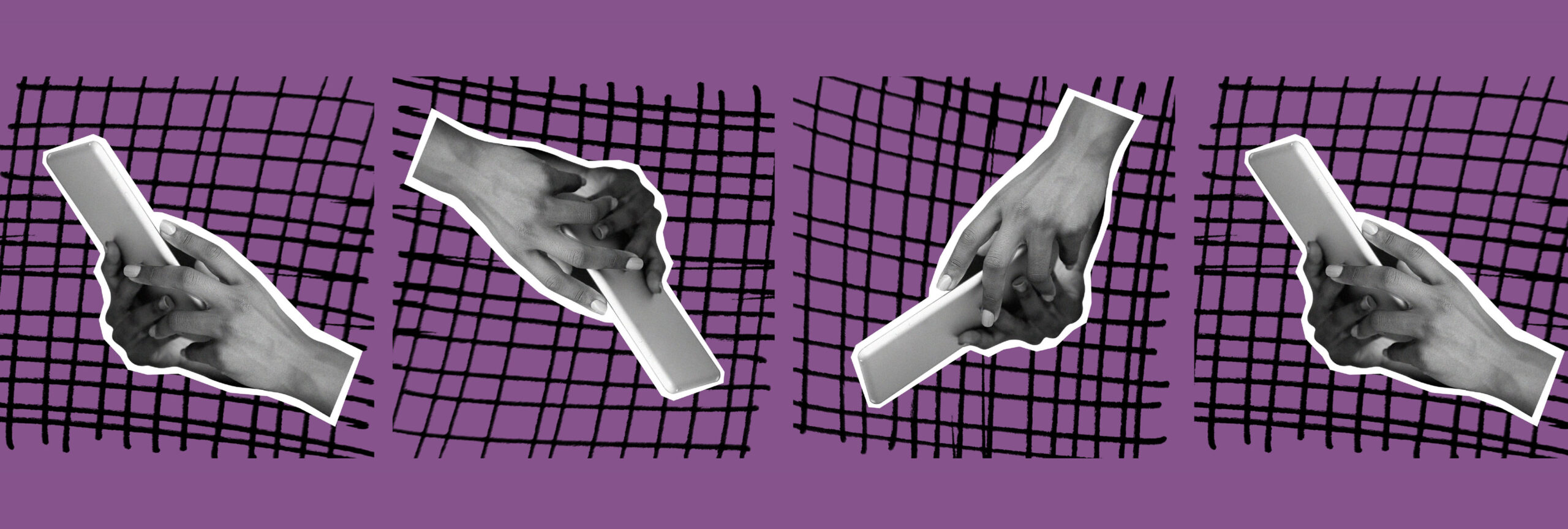Data Against Feminicide is a space to explore and promote the creation of feminist technology, including artificial intelligence (AI). Within this framework, we develop tools to support the collection of feminicide data from the media. The aim is to facilitate, not substitute, activist work and to reduce exposure to stories of violence that must be reviewed to compile feminicide data. You can learn more about the co-design process in these recommended readings.
Two digital tools were co-designed by feminicide data activists and the Data + Feminism Lab (MIT): the Data Against Feminicide Data Highlighter and the Data Against Feminicide Email Alerts. Both are available in Spanish, English, Portuguese, and Swahili.
We are currently collaborating with DISCO Lab, Brown University to explore the development of new AI tools.

Co-designed Tool #1
Data Highlighter
The Data Against Feminicide Highlighter is a plug-in for the Chrome browser. Its function is to highlight words in the text of a web page that are useful for recording cases, specifically names, places, dates, and words selected by the user. The plug-in also allows a database to be opened side-by-side (or top/bottom) simultaneously with the article being analyzed, to facilitate data entry. It also allows the article URL to be shared via email. It works in Spanish, English, and Portuguese and on any web page, but is optimized for news media websites.

Co-designed Tool #2
Email Alerts
The Data Against Feminicide Email Alerts combines a media database, a machine learning algorithm, and email alerts to report potential cases of feminicide. The system searches the MediaCloud database for news stories based on search terms and the region determined for each project. It then filters the results through a machine learning algorithm specifically trained to calculate the probability that an article refers to a case of feminicide and to group articles from different sources that refer to the same case. Finally, an email is sent out with the relevant articles, based on the frequency determined by each user. The MediaCloud system allows users to view the sources and also suggest new relevant sources.
If you or your group are interested in using Data Against Feminicide’s Email Alerts or in exploring a translation project, please send an email to datoscontrafeminicidio@gmail.com.

Feminicide Narratives and AI
We are currently collaborating with DISCO Lab, Brown University to explore the possibility of implementing a feminist process for the development of AI tools.
Find out more about this project.
-
Counting Feminicide: Data Feminism in Action (D’Ignazio, 2024)
What isn’t counted doesn’t count. And dominant institutions systematically fail to account for feminicide, the gender-based murder of women and girls, including cisgender and transgender women. In the face of this failure, Counting Feminicide foregrounds the work of data activists across the Americas who are documenting these kinds of murders and challenging the reigning logic
-
Data Against Feminicide: The Process and Impact of Codesigning Digital Research Tools (Suárez Val et al, 2024)
Data Against Feminicide is an action research collaboration that aims to foster an international community of practice around femicide data. In this chapter, we introduce two tools we have co-designed and tested with activists to facilitate their work and ease the burdens on their workflow. Data Against Feminicide Email Alerts is an artificial intelligence-based system that detects
-
The revolution shall not be automated: On the political possibilities of activism through data & AI (Cruxên, 2024)
Reflecting on the “AI revolution”, Isadora Cruxên draws on her experience working with activists in the collaborative project Data Against Feminicide to argue that the politics of data and AI is, at heart, a politics of knowledge production. She invites us all to take part in this conversation. Cruxên, I. (2024, mayo 28). The revolution
-
Technology and Anti-Feminicide Data Activists (Jungs de Almeida et al, 2023)
Data Against Feminicide project collaborates with Brazilian civil society organizations to develop digital technologies to support the struggle against feminicide. Jungs de Almeida, A., D’Ignazio, C., França, C., Cruxên, I., Kalil, M. E. X., Marques, R., Mariano, S., Negrão, T., & Siqueira, T. P. (2023, agosto 30). Tecnologia e Ativistas de Dados Contra o Feminicídio.
-
Human-Centered Computing and Feminicide Counterdata Science (D’Ignazio, 2023)
Data about feminicide can be conceived as missing data – data that are neglected by authorities and underreported in official registries. Activists and civil society groups in Latin America and beyond are increasingly stepping into these gendered data gaps to undertake feminist counterdata science – an explicit challenge to the inadequate data practices of governments
-
Feminicide and counterdata production. A conversation with FAIR
Feminicide and counterdata production. A conversation between the DCF team and the Feminist AI Research Network (FAIR). ILDA, Data + Feminism Lab, Feminicidio Uruguay, Tierra Común, & Feminista AI Research Network (Producers). (2022, agosto 9). Feminicidio y la producción de contradatos [Video recording]. https://www.youtube.com/watch?v=Nhu8mBoBvXs
-
News as Data for Activists: a case study in feminicide counterdata production (Bhargava et al, 2022)
Bhargava, R., Suresh, H., & Doğan, A. L. (2022). News as Data for Activists: A case study in feminicide counterdata production. 5. https://github.com/browninstitute/c-plus-j-website/raw/main/proceedings/Session9Group2.pdf News articles are an important source of data for recording and aggregating a range of social phenomena. In this paper, we ask if and how technology can support civil society activists who
-
Towards Intersectional Feminist and Participatory ML: A Case Study in Supporting Feminicide Counterdata Collection (Suresh et al, 2022)
Data ethics and fairness have emerged as important areas of research in recent years. However, much work in this area focuses on retroactively auditing and “mitigating bias” in existing, potentially flawed systems, without interrogating the deeper structural inequalities underlying them. There are not yet examples of how to apply feminist and participatory methodologies from the
-
Feminicide & Machine learning: Detecting Gender-based Violence to Strengthen Civil Sector Activism (D’Ignazio et al, 2020)
Gender-related violence against women and its lethal outcome, feminicide, are a serious problem in Latin America and the Caribbean (LAC), as they are in the rest of the world. Although governments have passed legislation criminalizing feminicide, these laws have not been accompanied by relevant policy nor by robust data collection that measures the scope and

